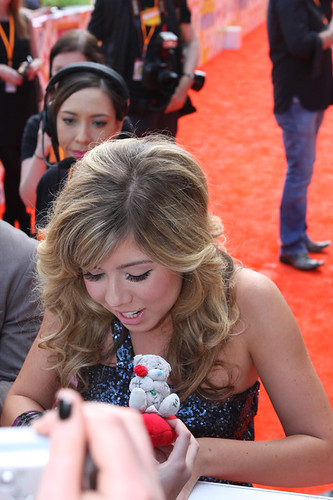
Jennette McCurdy, the beloved former child star known for her roles as Sam Puckett on Nickelodeon’s “iCarly” and “Sam & Cat,” made headlines in 2022 with the release of her memoir, “I’m Glad My Mom Died.” This highly anticipated book offered a raw and unfiltered look into her tumultuous upbringing, her struggles with addiction and eating disorders, and the challenging realities of being a child actor. Beyond her personal battles, McCurdy bravely unveiled an insider’s perspective on her relationships with famous friends, particularly her “Sam & Cat” co-star, Ariana Grande.
While the public narrative often painted a picture of a close-knit friendship between McCurdy and Grande during their shared Nickelodeon tenure, McCurdy’s memoir presents a strikingly different reality. She candidly writes, “I didn’t like her. I couldn’t like her,” a sentiment that has since sparked widespread discussion and provided a deeper understanding of the pressures and perceived injustices faced by young stars in the entertainment industry.
McCurdy’s narrative is a poignant reminder that behind the glitz and glamour of celebrity, real human experiences and struggles unfold. Her story invites us to look beyond the curated images presented by the media and to truly engage with the experiences of individuals navigating the demanding world of entertainment. Through her honesty, McCurdy not only sheds light on her personal journey but also offers valuable insights into the dynamics that can shape relationships in high-pressure environments.
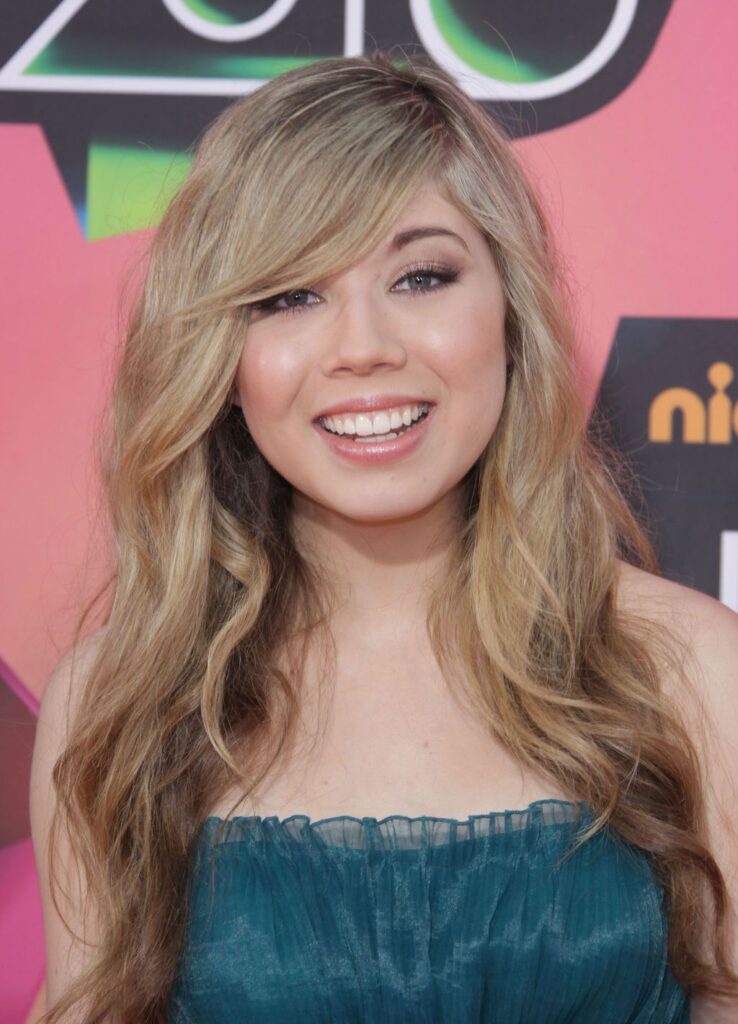
1. **The Genesis of Jennette McCurdy’s Memoir: “I’m Glad My Mom Died”**
Jennette McCurdy’s memoir, “I’m Glad My Mom Died,” published in 2022, was a seismic event, offering an unprecedented look into the darker side of child stardom and personal trauma. The provocative title itself, which McCurdy acknowledges left her grandmother in hysterics, was chosen deliberately to reflect her journey of coming to terms with the abuse she endured from her mother, Debra. McCurdy firmly believes she has “rightfully earned” the title, stating, “I feel strongly that anybody who has experienced abuse from a parental figure will know what I’m talking about.”
The memoir details McCurdy’s “struggles as a former child actor — including eating disorders, addiction, and a complicated relationship with her overbearing mother — and how she retook control of her life.” These deep-seated personal plights form the backdrop against which her experiences with co-stars like Ariana Grande are recounted. Her candor about these difficult subjects has resonated deeply with readers, leading to the book quickly selling out and prompting widespread conversations about the vulnerabilities of child actors and the impact of parental control.
McCurdy’s decision to share her story came after six years of therapy, during which she began to unpack the profound impact her late mother had on her life. Initially, she was reluctant to remove her mother from a “self-anointed pedestal,” having built much of her identity around being a “perky people-pleaser.” This illustrates the monumental emotional effort required for McCurdy to arrive at a place of transparency and healing, a place from which she could then articulate her complex feelings about her professional life and relationships, including her long-held resentments towards Ariana Grande.
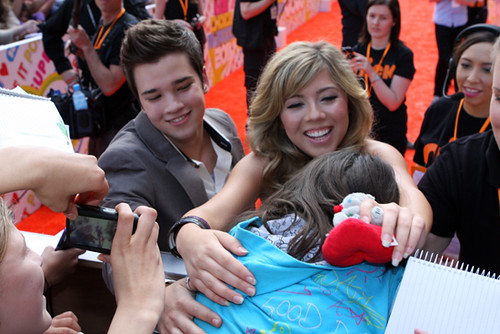
2. **From Nickelodeon Co-Stars to Strained Relationship: The “Sam & Cat” Context**
Before the release of her memoir, Jennette McCurdy and Ariana Grande were widely perceived as “thick as thieves,” a close friendship forged during their time starring in the Nickelodeon spin-off series “Sam & Cat.” The show, which premiered in 2013 and featured McCurdy’s “iCarly” character, Sam Puckett, alongside Grande’s “Victorious” character, Cat Valentine, was a crossover event that brought together two popular figures from the network. Their on-screen chemistry and media portrayals suggested a genuine bond, making McCurdy’s later revelations all the more surprising to fans.
The reality, as McCurdy recounts in “I’m Glad My Mom Died,” was far from the picture-perfect image presented to the public. She admits, “I didn’t like her. I couldn’t like her,” sentiments that directly contradicted the widely held belief about their relationship. The show itself, despite its initial popularity, was short-lived, running for only one season with 35 episodes before its unceremonious cancellation. McCurdy reveals she was “thrilled” when “Sam & Cat” was canceled, a stark contrast to expectations for a lead actor.
“Sam & Cat” placed McCurdy in a constant comparative environment with Grande, a situation she describes as difficult. She wrote, “I’m constantly in the same environment as her, and she doesn’t exactly try to hide her successes.” This constant exposure to Grande’s rising star, coupled with her own personal challenges, created fertile ground for feelings of envy and resentment. The premise of the show, which was originally supposed to be McCurdy’s solo spin-off “Just Puckett,” evolving into a two-hander, further fueled her dissatisfaction with the project and, by extension, her co-star.
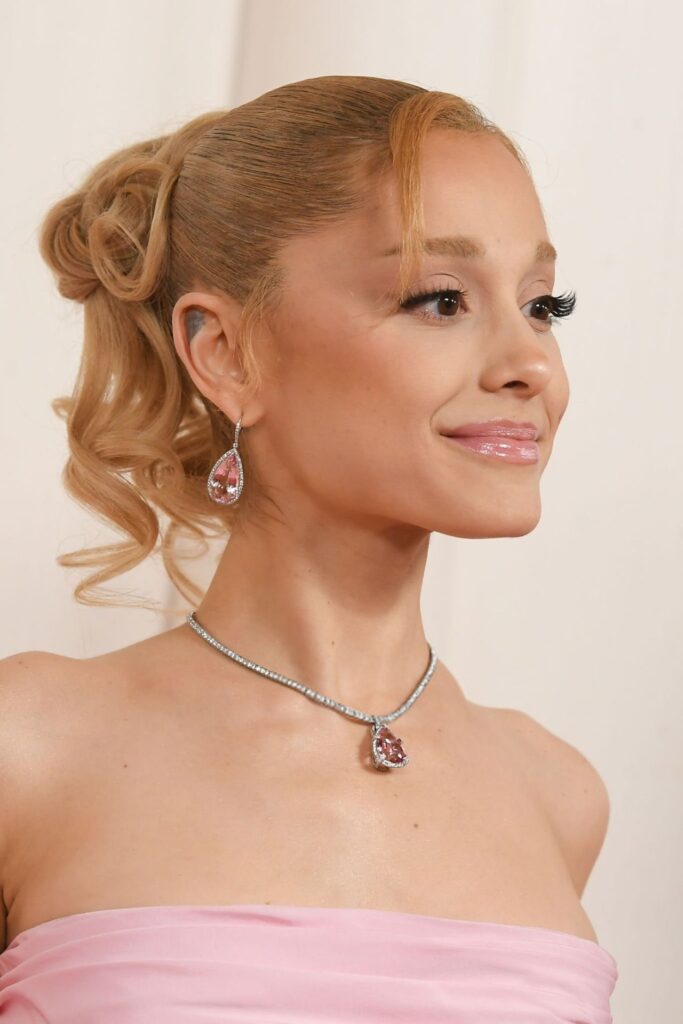
3. **Ariana Grande’s Burgeoning Pop Star Career and Its Impact on Set**
A central theme of Jennette McCurdy’s memoir is the stark contrast between her and Ariana Grande’s career trajectories during their time on “Sam & Cat.” Grande, who had already gained recognition as Cat Valentine, was simultaneously cultivating a booming music career, an endeavor that often took precedence over her Nickelodeon commitments. McCurdy explains that Grande was a “burgeoning pop star who misses work regularly to go sing at award shows, record new songs, and do press for her upcoming album.” This parallel pursuit meant Grande frequently missed rehearsals and shooting days, leading to significant disruptions on the “Sam & Cat” set.
Initially, McCurdy stated that she “didn’t let Ariana’s absence bother her” when Grande would only miss “a few days on set.” She claimed she was “unfazed” by Grande “singing some cheesy pop song on a stage” or “trotting onto set saying she’d be on the cover of Elle magazine.” This initial dismissal, however, began to crack as Grande’s absences became more frequent and prolonged. The perception that Grande was afforded special privileges due to her rising music career became a significant source of frustration for McCurdy, creating an environment ripe for resentment and comparison.
The cumulative effect of Grande’s music career infringing on their shared filming schedule became unbearable for McCurdy. The context reveals that while Grande was “whistle-toning at the Billboard Music Awards” and pursuing other exciting opportunities, McCurdy felt tethered to the “s–tty show,” delivering “s–tty lines on this s–tty set with this s–tty hairstyle.” This profound difference in their professional freedoms and experiences deeply impacted McCurdy’s perception of Grande. It wasn’t just about Grande’s success; it was about how that success directly affected McCurdy’s own professional life, leading to a feeling of being trapped and undervalued.
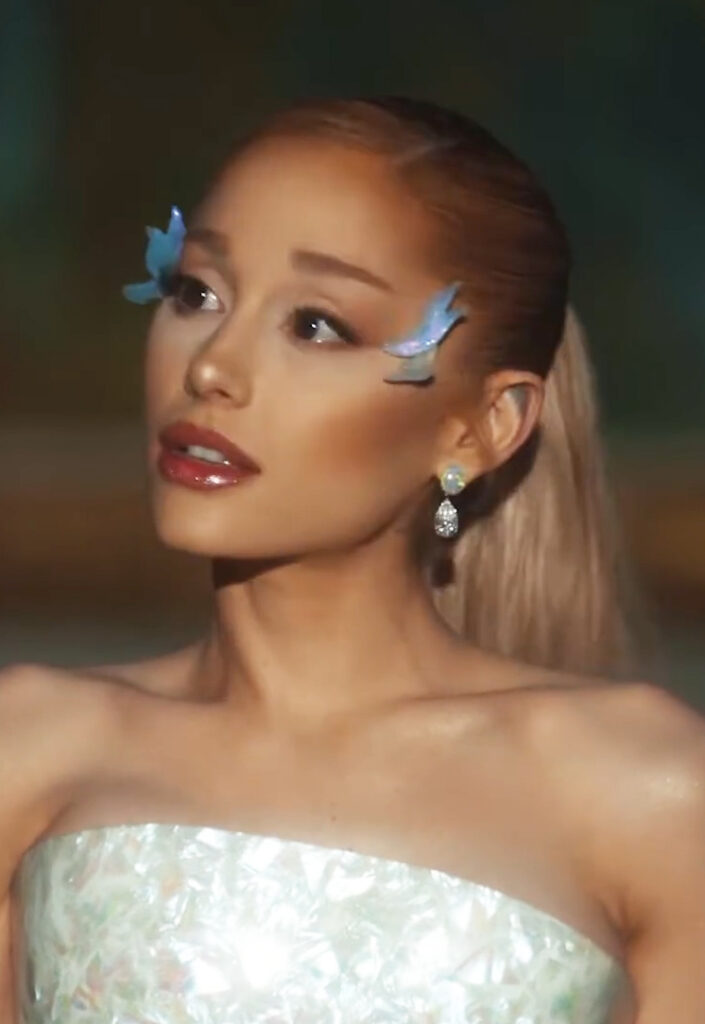
4. **The Double Standard: Jennette’s Missed Opportunities vs. Ariana’s Leeway**
One of the most potent sources of Jennette McCurdy’s resentment stemmed from what she perceived as a blatant double standard in how she and Ariana Grande were treated by Nickelodeon’s production team. McCurdy recounted in her memoir that she had “booked two features during ‘iCarly’ that I had to turn down because the ‘iCarly’ team wouldn’t write me out of episodes to go shoot them.” This highlights a significant personal and professional sacrifice McCurdy made due to her commitment to the network.
In stark contrast, Grande “was treated differently and given more leeway when it came to pursuing her dreams.” While McCurdy was forced to forgo external acting opportunities, Grande “got to live out her passions without any fuss from production.” This disparity created a deep sense of injustice for McCurdy, who questioned why she was not afforded the same flexibility. The situation was further exacerbated by crew members frequently lauding McCurdy for “being a ‘good sport’ about the frustrating circumstances,” a phrase she “heard so often” that she understood its underlying implication: she was holding down the fort while Grande pursued her career.
The core of McCurdy’s anger wasn’t necessarily at Grande’s success, but at the perceived unfairness of the system. She explicitly stated her confusion: “although she understood why Ariana missed work, Jennette didn’t know why she was not given the same treatment.” This distinction is critical; it was a deeply felt grievance over a lack of equitable professional treatment. The inability to pursue her own ambitions while witnessing Grande’s unfettered ascent cultivated a profound sense of unfairness, leading to McCurdy becoming “envious” and ultimately, “pissed about it. And I’m pissed at her. Jealous of her.” The imbalance in professional autonomy directly fueled the discord.
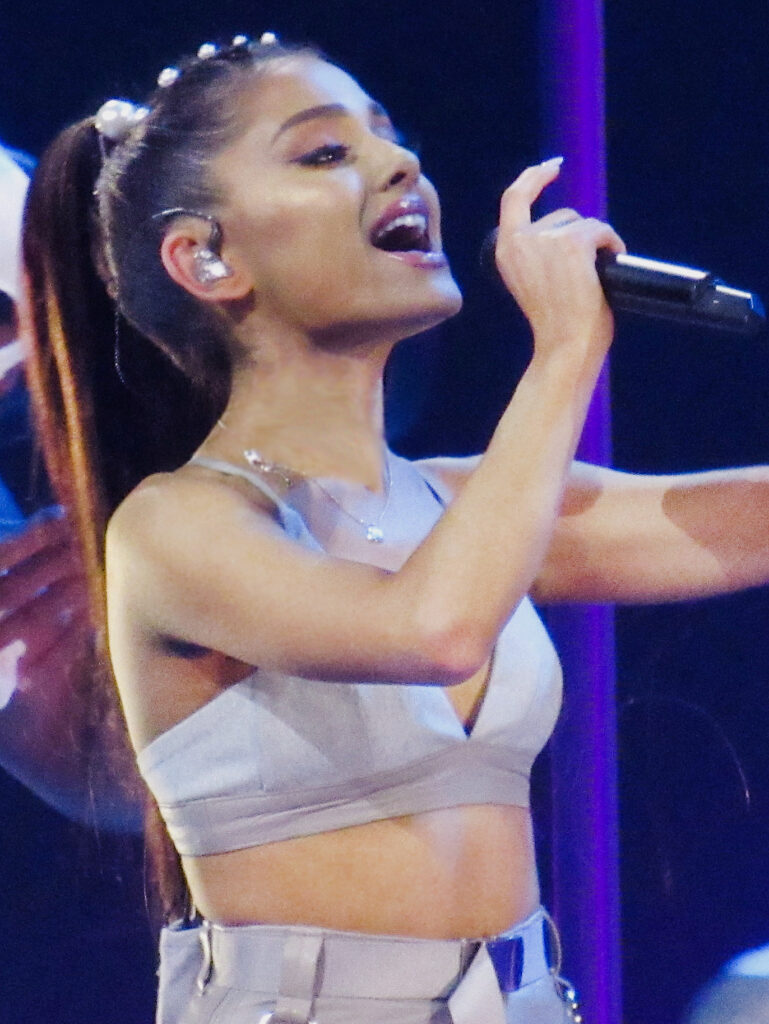
5. **The “Good Sport” Narrative and McCurdy’s Mounting Frustration**
The phrase “good sport” became a recurring and increasingly aggravating motif for Jennette McCurdy during her time on “Sam & Cat.” As Ariana Grande’s absences for her music career became more frequent, McCurdy found herself repeatedly praised by various crew members for “being such a good sport” about the situation. However, for McCurdy, this compliment felt less like genuine appreciation and more like a patronizing acknowledgment of her predicament. She vividly recalls the internal monologue: “I know why I’m hearing this phrase so often. It’s because my costar Ariana Grande is a burgeoning pop star who misses work regularly… while I stay back and angrily hold down the fort.”
This constant reinforcement of her “good sport” status began to grate on McCurdy, contributing significantly to her mounting frustration. She reached a point where she felt immense regret for her accommodating nature, writing, “Ultimately, the unjust situation led Jennette to ‘resent being a good sport.'” She elaborated on this sentiment, stating, “If I wasn’t such a good sport to begin with, I wouldn’t be in this predicament in the first place. I wouldn’t be on this s–tty show saying these s–tty lines on this s–tty set with this s–tty hairstyle.”
The irony of being praised for enduring a situation that she deeply resented only intensified McCurdy’s internal turmoil. She yearned for a different path, fantasizing about how her life might have unfolded had she not been so agreeable. This period was characterized by a growing bitterness, not just towards the circumstances but also towards Grande, whom she felt was implicitly benefiting from this unequal arrangement. The “good sport” narrative, far from being a comfort, became a symbol of her diminishing agency and rising resentment, turning her into a “bitter person” who couldn’t help but feel “pissed about it. And I’m pissed at her. Jealous of her.”
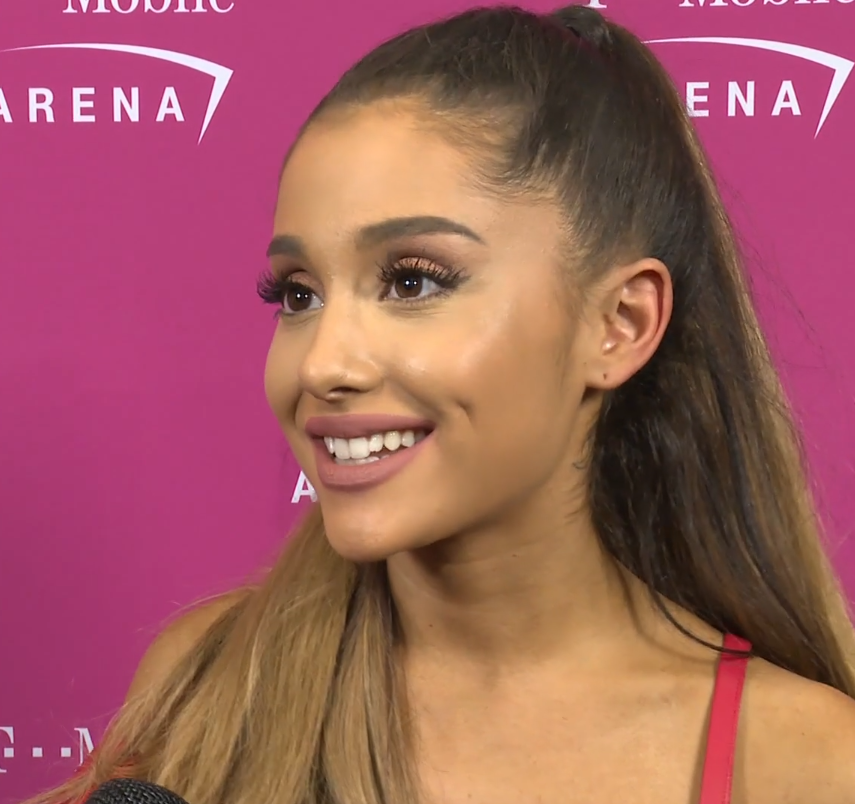
6. **The Infamous “Box” Episode: A Symbol of Disparity**
The escalating frustration for Jennette McCurdy reached a critical point when Ariana Grande’s absences became so prolonged that production had to drastically alter an episode’s plot to accommodate her. McCurdy recounted the moment she learned, “The week where I was told Ariana would not be here at all and that they would write around her absence this episode by having her character be locked in a box. Are you. Kidding me?” This particular incident became a potent symbol of the glaring disparity in treatment between the two co-stars, and it was a moment where McCurdy’s patience snapped.
The absurdity of having Grande’s character, Cat, confined to a box to explain her lack of screen time while Grande herself was off pursuing her thriving music career was a bitter pill for McCurdy to swallow. It highlighted the extent to which the show’s structure and her own acting responsibilities were being dictated by Grande’s external engagements. McCurdy’s incredulous reaction, “So I have to turn down movies while Ariana’s off whistle-toning at the Billboard Music Awards? F–k. This,” perfectly encapsulates her outrage and the feeling of injustice.
This specific episode served as a breaking point for McCurdy’s tolerance. She articulated her growing fury, stating, “Ariana misses work in pursuit of her music career while I act with a box.” The imagery of her performing opposite an empty prop, necessitated by her co-star’s absence, underscores the profound sense of indignity and disrespect she felt. It was a tangible representation of her being “forced to turn down opportunities while filming ‘Sam & Cat'” while Grande “got to live out her passions without any fuss from production.” The “box episode” therefore stands as a vivid and unforgettable illustration of the professional inequities that plagued their working relationship.
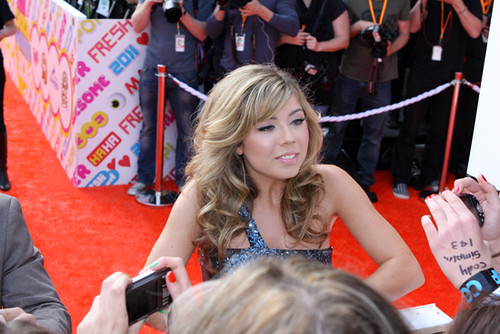
7. **Comparing Childhoods: A Root Cause of Envy**
Jennette McCurdy delved deeply into the psychological underpinnings of her jealousy toward Ariana Grande, tracing it back to their vastly different upbringings. She candidly admitted that her envy of the “34+35” vocalist “originated from their contrasting childhoods.” McCurdy’s own formative years were marked by severe financial hardship and a deeply troubled family dynamic. She vividly described her environment: “I grew up in Garbage Grove in a goddamned hoarder house with a cancerous mom who constantly wept about not being able to afford rent and utility bills.”
In stark contrast, Grande’s childhood was characterized by privilege and comfort. McCurdy painted a picture of Grande growing up “in Boca Raton, Florida, an incredibly wealthy, idyllic town, with a healthy mom who could buy her whatever she wanted, whenever she wanted — Gucci bags, fancy vacations, Chanel outfits.” This side-by-side comparison underscores not just material differences but also a fundamental divergence in their foundational experiences of the world. For McCurdy, already dealing with the trauma of an overbearing mother, Grande’s seemingly effortless access to wealth and opportunities likely felt like a cruel cosmic joke.
This fundamental difference in their backgrounds created a fertile ground for McCurdy’s resentment to blossom. Her struggles with her mother, who was diagnosed with stage four breast cancer when McCurdy was two, and the constant pressure to be the “main breadwinner” from a young age, shaped her worldview. When confronted with Grande’s apparent ease and abundant resources, McCurdy’s feelings of injustice were amplified. It wasn’t just about career opportunities; it was about the very fabric of their lives, highlighting that the “jealousy of Ariana stemmed from their different upbringings.” This deeply personal context provides crucial insight into why Grande’s success became such a significant emotional trigger.
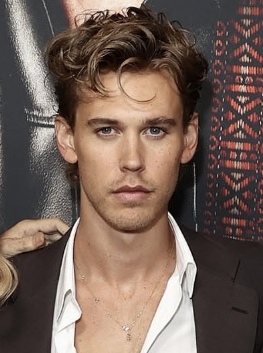
8. **The Tom Hanks Charades Incident: The Ultimate Breaking Point**
Amidst the mounting frustrations and professional disparities, Jennette McCurdy recounts a singular event that served as the definitive breaking point in her feelings towards Ariana Grande. It wasn’t another missed rehearsal or a magazine cover, but something far more personal and aspirational that finally shattered her composure. She vividly describes the moment Grande “came whistle-toning in with excitement because she had spent the previous evening playing charades at Tom Hanks’ house.” This seemingly innocuous celebrity anecdote, for McCurdy, was the final straw.
This particular revelation struck McCurdy differently from all of Grande’s previous successes. She articulated her profound reaction, writing, “That was the moment I broke. I couldn’t take it anymore. Music performances and magazine covers… whatever, I’ll get over it. But playing a family game at National Treasure, two-time Academy Award–winner and six-time nominee Tom Hanks’ house? I’m done.” It was a clear line drawn in the sand, distinguishing between professional achievements she could grudgingly accept and a level of personal, social privilege that felt like an unbearable slight.
For McCurdy, who had sacrificed so much in her own career, the thought of Grande casually socializing with an icon like Tom Hanks, particularly when McCurdy herself had been forced to forgo significant acting roles, was simply too much to bear. She expressed her outrage with stark clarity: “Pop star success I could handle, but hanging out with Sheriff Woody, with Forrest F–king Gump? This has gone too far.” This moment crystallized her long-simmering resentment, transforming it from a general professional grievance into a deeply personal affront that she could no longer suppress.
9. **The Aftermath: Resentment Manifested and a Hardened Heart**
Following the Tom Hanks charades incident, Jennette McCurdy’s perception of Ariana Grande underwent an irreversible shift, solidifying her dislike and coloring every subsequent interaction. The anger and jealousy she had tried to suppress or rationalize now became an undeniable force, making it impossible for her to view Grande or her successes without a lens of deep-seated bitterness. This was no longer just about professional competition; it was a profound personal affront.
McCurdy candidly admitted that “From that moment on, I didn’t like her. I couldn’t like her.” This wasn’t a fleeting emotion but a fundamental change in her ability to feel any goodwill towards her co-star. The frustration transformed into a pervasive sense of injustice, where every positive development in Grande’s life felt like a direct subtraction from her own potential and happiness.
She described this new, pervasive feeling: “So now, every time she misses work, it feels like a personal attack. Every time something exciting happens to her, I feel like she robbed me of having that experience myself.” This statement powerfully conveys the extent of her wounded feelings, illustrating how Grande’s successes, once perhaps just causes for envy, now felt like direct assaults on McCurdy’s own dreams and aspirations, fueling a cycle of pain and resentment.
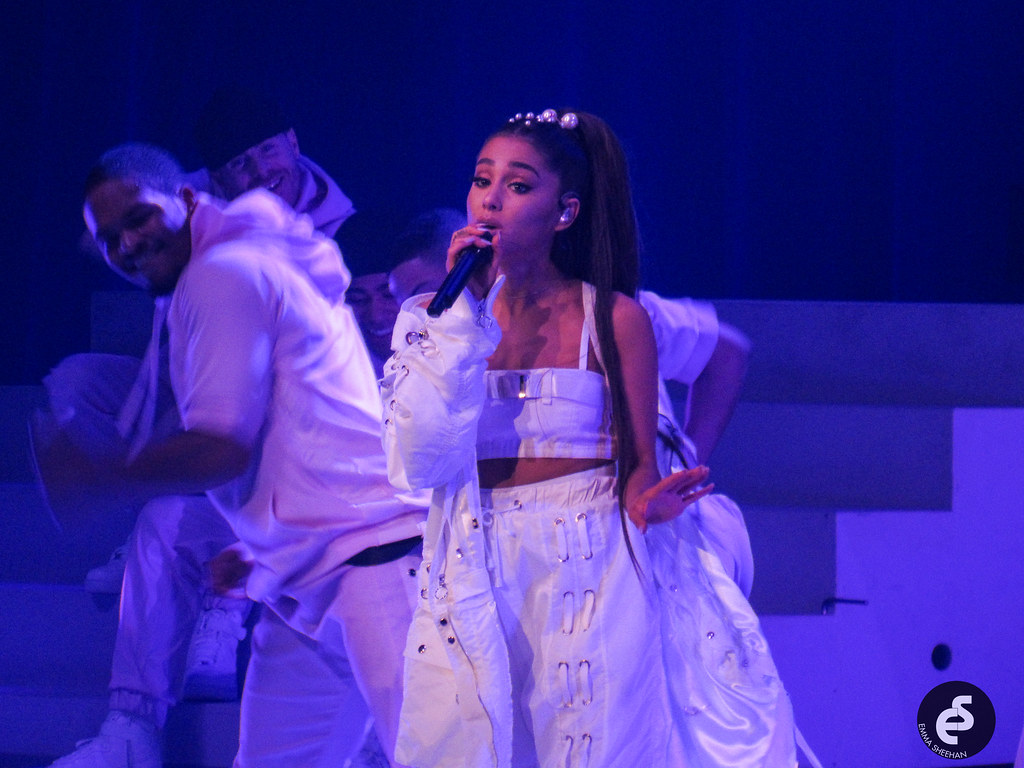
10. **”I Didn’t Like Her. I Couldn’t Like Her”: The Candid Admission**
Jennette McCurdy’s declaration, “I didn’t like her. I couldn’t like her,” became one of the most striking and widely discussed revelations from her memoir, “I’m Glad My Mom Died.” This direct and unfiltered admission sharply contrasted with the public perception of her and Ariana Grande as close friends, cultivated during their time as co-stars on “Sam & Cat.” For many fans, who had seen their on-screen chemistry and media-friendly appearances, this level of animosity was a shocking insight into the realities of child stardom.
The candidness of her words highlighted the immense pressure and emotional toll that the entertainment industry, particularly Nickelodeon, placed on its young talent. It revealed that beneath the carefully constructed public image of camaraderie, a complex tapestry of resentment, jealousy, and perceived unfairness was unfolding. McCurdy’s unwavering honesty allowed readers to grapple with the nuance of her feelings, moving beyond a simple dislike to an inability to forge a genuine connection.
This bold statement, far from being a petty grievance, underscored the depth of McCurdy’s psychological struggles and the long-term impact of her experiences on set. It served as a powerful testament to her commitment to truth, even when it meant dismantling popular narratives. Her memoir, through such raw confessions, sought to provide an authentic account of her journey, challenging preconceived notions about celebrity friendships and the often-unseen struggles behind the scenes.

11. **Where Do Jennette McCurdy and Ariana Grande Stand Today?**
In the aftermath of her memoir’s release, the inevitable question arose regarding the current state of Jennette McCurdy’s relationship with Ariana Grande. While McCurdy has bravely shared her deeply personal feelings and experiences, the interaction, or lack thereof, between the former co-stars remains a point of public interest. According to Entertainment Tonight, McCurdy confirmed she “had not heard from Grande after the release of her book,” indicating that a direct conversation has not yet taken place.
Despite the candid and at times critical portrayal of their working relationship in the memoir, McCurdy holds a nuanced perspective on Grande reading her story. She openly expressed her hope, stating, “I don’t know if she’ll read the book or not, but I think it’s a really entertaining read regardless of who you are, so I hope she does.” This reflects a desire for her narrative to be heard, not necessarily as an act of accusation, but as an honest recounting of her past, perhaps even for Grande to gain a different perspective.
Time and therapy have evidently provided McCurdy with a new lens through which to view her past experiences. She told Vogue that she is now “able to look back on it and just see it as the comedy gold that it is, to be on set at 21, where you’re just the most susceptible to jealousy and comparison that you can possibly be, and I’m there across from a burgeoning popstar of the day. Like, that is just so funny to me, and I tried to capture that humor.” This shift from raw pain to a more detached, even humorous, perspective speaks volumes about her healing journey.
While McCurdy confirms she “has not spoken to Grande in ‘a good couple of years,'” her current sentiments are rooted in peace and well-wishes. She expressed, with genuine warmth, that she “wishes her the best and hopes ‘that she is as happy and fulfilled as anybody can be.'” This mature outlook underscores McCurdy’s personal growth, demonstrating a capacity for empathy and moving beyond past resentments to embrace her own happiness.

12. **Public Reactions: Support, Empathy, and Understanding**
Jennette McCurdy’s memoir ignited a significant public conversation, with “I’m Glad My Mom Died” quickly selling out and “popping off all over the internet.” The raw honesty with which McCurdy recounted her struggles, particularly her feelings towards Ariana Grande, resonated deeply with a wide audience. Fans, long accustomed to carefully curated celebrity narratives, largely “rallied with the former child star, supporting her and her memoir,” appreciating her vulnerability and candor.
Social media became a hub for discussion, with many expressing empathy for McCurdy’s difficult situation. One commenter powerfully articulated this sentiment: “I don’t think Jeanette McCurdy is bitter for admitting how she felt about Ariana Grande’s career trajectory. This is someone that was told that she was worthless for a long time yet was the primary breadwinner as a child. I think… envy is natural, esp. in a competitive industry.” This perspective highlighted the systemic issues within child stardom rather than placing sole blame on either individual.
Even some “Arianators,” fans of Ariana Grande, extended their understanding to McCurdy, acknowledging the validity of her feelings without necessarily condemning Grande. Comments like “blame nickelodeon, not ariana” and “jennette mccurdy wasn’t being mean nor shady towards ariana grande in her memoir” emerged, indicating a more nuanced public reception that recognized the complexities of the situation. This collective response showcased a maturing understanding of the pressures young celebrities face.
Beyond the serious discussions, the specific detail of Grande playing charades at Tom Hanks’ house sparked a humorous, meme-like reaction, with one user tweeting, “im waiting for tom hanks, ariana grande and jennette mccurdy to play charades together. it’s what the world needs at this time.” This lighthearted engagement demonstrated the memoir’s broad impact and its ability to connect with different facets of internet culture, proving that McCurdy’s story had truly captured the public’s imagination, transcending mere celebrity gossip to become a cultural touchstone.
Read more about: TMZ’s Public Reckoning: Unpacking the ‘Tone Deaf Laughter’ Controversy During Charlie Kirk Death Coverage
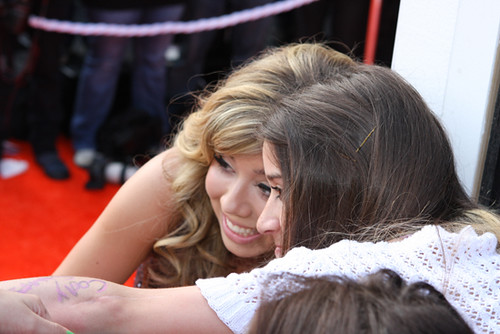
13. **Beyond Grande: Nickelodeon’s Shadow and “The Creator”**
While Jennette McCurdy’s revelations about Ariana Grande captivated headlines, her memoir, “I’m Glad My Mom Died,” delves into a much broader and darker context concerning her experiences with child stardom and Nickelodeon. McCurdy’s narrative sheds light on what she perceived as exploitative practices, including a significant financial offer she received after departing the network. She recounted turning down a “$300,000 offer that would require her never to speak publicly about her experiences there,” viewing it explicitly as “hush money.” Her refusal to accept this sum speaks volumes about her determination to tell her truth on her own terms, rather than being silenced by financial incentives.
The memoir also details deeply unsettling allegations against an unnamed figure referred to as “The Creator” at Nickelodeon. McCurdy recounted instances that she found highly inappropriate and invasive, including receiving an “unsolicited shoulder massage,” being “ordered her to have her picture taken in a bikini during a wardrobe fitting,” and being told “to drink an alcohol-spiked coffee when she was 18.” These incidents paint a disturbing picture of the environment she navigated as a young actor, highlighting a profound imbalance of power and a lack of safeguarding.
McCurdy’s decision to expose these difficult truths, despite the potential repercussions, was rooted in a profound personal commitment to integrity. She emphasized that “Honesty is one of my personal values,” a principle she consciously applied to her writing. She further articulated her motivation, explaining that it “would be a disservice to my own health and healing and to anybody who read the book if I was anything less than transparent.” This unwavering dedication to authenticity underscores the courage required to confront and articulate such painful past experiences, serving as a powerful message for others who have endured similar situations.
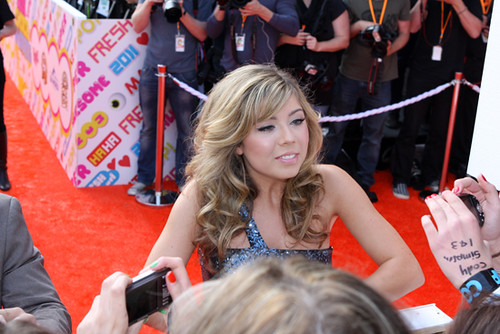
14. **A New Chapter: Empowerment, Healing, and Future Horizons**
Having navigated a childhood fraught with abuse, eating disorders, addiction, and the pressures of child stardom, Jennette McCurdy has deliberately sculpted a new path for herself, defined by healing and self-empowerment. Her decision to retire from acting in 2016 marked a crucial turning point, allowing her to step away from an industry that had caused her immense pain and to reclaim her agency. This choice underscored her commitment to personal well-being over professional obligations, particularly those tied to her past traumas.
Further cementing her new direction, McCurdy politely declined to participate in the Paramount+ revival of “iCarly” when Miranda Cosgrove called her in late 2020. She cited a clear “desire to pursue other projects,” illustrating her determination to forge a future on her own terms. The support she received from her former “iCarly” co-stars, including Cosgrove, Nathan Kress, and Jerry Trainor, further validated her decision, demonstrating a respect for her personal journey and choices.
McCurdy’s personal growth since those tumultuous years is palpable, characterized by a profound sense of self-acceptance and pride. “I’m at a place where I wouldn’t trade my life with anybody’s,” she declared, reflecting on the arduous journey to self-discovery. She added, “I’m very proud of the life that I’ve built, and I’ve done it on my terms and I’ve done it with integrity, and it’s so nice to be able to say I’m proud of who I am and where I am. It feels empowering.”
Today, McCurdy channels her creative energy into writing, actively working on a novel and a collection of essays that will continue her story from where her memoir leaves off. While her primary focus remains writing and directing, she has surprisingly opened the door to a potential return to acting, but only under conditions that prioritize her healing and authenticity. “I recently thought that maybe there’s a way of actually acting again that would be healing and wouldn’t carry with it the baggage that it carried for me before,” she mused, signaling a hopeful and empowered future for the once-struggling child star.
Jennette McCurdy’s journey, from the confines of child stardom and deep-seated resentments to a place of profound self-acceptance and creative freedom, is a powerful testament to the human spirit’s resilience. Her memoir, a beacon of raw honesty, not only shattered preconceived notions about celebrity but also illuminated the path to reclaiming one’s narrative. By courageously sharing her truth, McCurdy has not only found her own voice but has also inspired countless others to seek healing and embrace their own authentic selves, proving that even from the darkest shadows, one can emerge with empowering grace and unwavering integrity.



